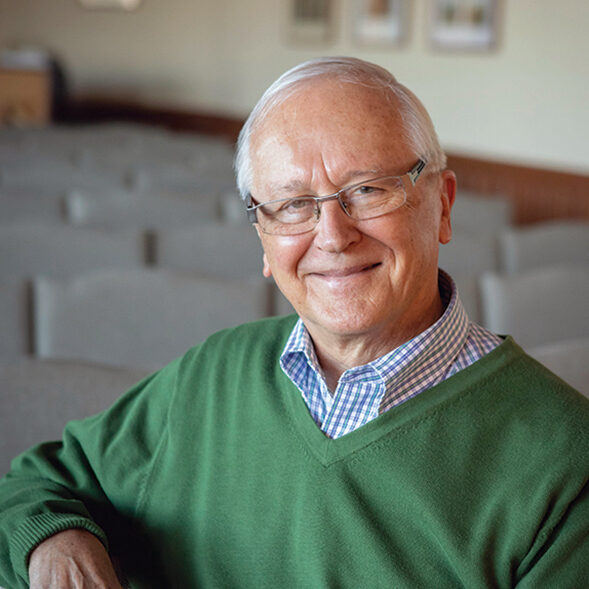 |
John A. Braun
From the beginning of his life, Jesus was the focus of opposition. Herod wanted to rid his little part of the world of this child whose birth had been announced by a star. Later crowds flocked to him with their diseases. They also came longing to hear the good news for their weary souls. They recognized that Jesus spoke with the voice of authority. Yet opposition persisted throughout his ministry. And we know his opponents orchestrated his crucifixion and unwittingly fulfilled God’s plans for the world’s salvation.
Jesus told his disciples they would experience the same kind of opposition because of their allegiance to him. He said that he was called a devil and told his disciples that they should not expect anything different (Matthew 10:25). He pointedly said, “You will be hated by all nations because of me” (Matthew 24:9). So it is.
Around the world each month, 255 Christians are killed, 104 abducted, 160 Christians are detained without trial and imprisoned, and 66 churches are attacked (Open Doors USA). The organization Open Doors ranks countries in the world that are the most hostile to Christians. North Korea has topped the list for 17 years, and countries dominated by Islam fill out much of the top ten list. These figures verify the warning of Jesus that the world will hate us because of him.
Why? Do we promote violence and unrest in our society or in the world? Do we teach hatred? Do we refuse to work or pay taxes? Are we diseased and require quarantine so others will not be infected? Are we somehow not human like other people? We bleed, laugh, cry, work, play, and feel emotions like everyone else.
Yet our Christian faith often creates anger, intimidation, and ridicule. Sometimes Christian students at universities are shamed for their beliefs. Many have felt tension and conflict from friends and family members because they trust in the promises of Jesus.
Why the hostility on the part of some?
First, we should expect it. Jesus told us it would be our experience in this world just as it was his experience. Of course, that doesn’t make it easier to endure. We are his disciples here and now, living where Jesus has placed us. So many Christians have come before us, and many will come after us. Some suffered more than we suffer, but they endured. Opposition persists.
Second, we have a message that the world does not consider important. We think it is. We treasure the message of God’s love, Jesus, forgiveness, and eternal life. But the gospel is not friendly to the human heart that prefers to create its own gods and theology. The Christian message challenges the sin within the human heart and dashes the hope that some god accepts everyone no matter what they believe or how they live. The gospel pits God’s good against human evil—God’s way against human dreams. The result is conflict.
Why persist with this message of God’s grace in Jesus? Because Jesus sent his disciples out as his witnesses. As his witnesses, they told what they saw and learned. They could not change what they shared. To change it would be to distort the truth. It might resolve some of the conflict and opposition, but they would be unreliable and unfaithful witnesses.
And why would they change their witness? Why indeed? It was and still is the Word of Life found nowhere else. We believe as those disciples on Ascension Day did—that Christian hope, joy, and peace transcend the understanding of the world (Philippians 4:7). Like them, we are his witnesses. May he help us remain faithful witnesses.
Author: John A. Braun
Volume 106, Number 5
Issue: May 2019
- We have love
- We have hope
- We have faith
- I come
- Love one another
- Palmetto palms and wrens
- Fathers
- Mother’s Day
- Believe the Word
- The Judas priority
- In Christ
- A thought: Mary
- Come, Lord Jesus!
- A thought: Here we stand!
- A thought: Obedience
- A thought: Hope
- A thought: Almighty God
- A thought: Scripture alone
- A thought: Their message to us
- A thought: The Ides of March
- A thought: The path of the righteous
- A thought: The Bible still matters
- A thought: Happy birthday, Brother!
- A thought: Change
- A thought: Our Father
- A thought: The difference
- A thought: Imperfect world, imperfect life
- A thought: Joy and peace today and everyday
- A thought: Good job!
- In God’s hands
- A thought: Outing death
- A thought: The Christ
- A thought: Trusting what we cannot see
- A thought: Partners
- Heirs of heaven
- Hope
- The Avengers and two lions
- Faith in Jesus
- God’s policy of love
- Lord, have mercy!
- Light in the darkness
- Why?
- The shroud
- A Lutheran Lent
- Where is God?
- Turning pages







